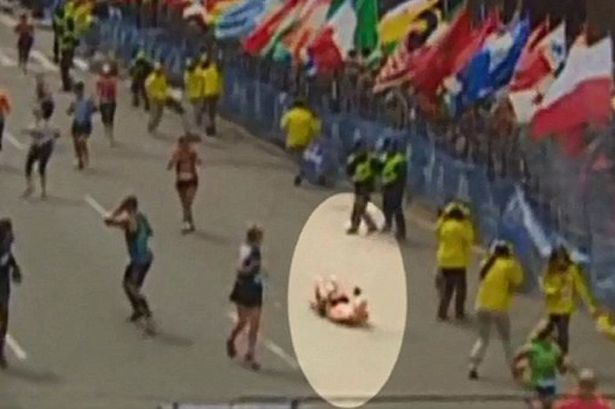The Marathon Runner
It says 4:09:44 on the digital clock hanging above the finish line. That’s a good time for a marathon. It’s a world-class time if you’re nearing eighty.
No matter how old you are, if you’ve been running for a little over four hours, your legs will be tired. They will be alive with lactic acid, full of a sour, searing pain. Your whole body will be weak, ready to collapse. But especially your legs.
It’s his legs you notice. The legs of the man in the orange pinny and black shorts. Later we will learn that he is Bill Iffrig, a seventy-eight-year-old retired mason worker from Lake Stevens, Washington, a top-flight long-distance runner and once an avid mountain climber. Now he appears to us as bib number 19200. He’s about thirty feet—maybe three or four seconds—from finishing the Boston Marathon, the most prestigious foot race in the world. His legs have carried him here.
When the explosion happens, to his left, his legs give out. But they give out in a strange way. First, his knees turn in; he goes pigeon-toed. He freezes for a hairline fracture of a second. Then he does the first move of what will look like a dance. While he holds his hands up in weak fists—wrists facing out—his hips sway to the right.
At first, it looks like he will fall this way, blown to the ground. But his legs are resilient. They must be, to be standing, however tenuously, where he is standing now. So they buckle in the opposite direction. Left, toward the burst. Improbably, left.
Left isn’t safe. The heat, the debris. The flags lining the road recognize the danger. When the bomb goes off, they start flapping like they’re trying to escape their poles.
His legs twist right again. Feet still planted on the asphalt. Right-left-right: they can’t make up their mind. Hard to blame them. They’ve made it this far. Their plan was to finish the Boston Marathon. Hard to quit on such a plan.

The legs, of course, finally accept the collapse. They have to. There is the exhaustion; the hot, cruel wind; the fear. They bring the man down. He’s on his left hip. Then he’s on his back. His legs—so good to him for so long—are no good to him now.
A police officer in a dish-soap yellow vest and black sunglasses stands over him. The cop almost straddles the man, as if there’s a protest going on, and the seventy-eight-year-old is an eccentric anarchist, and the cop has kicked him to the ground.
But this is a different kind of day. The swirl of white hair on the man’s head is a halo blowing away in the wind. The cop helps him to his feet.
With assistance, the runner finishes the race. Takes another dozen strides, maybe. “After you’ve run 26 miles, you’re not going to stop there,” he says later. Nor should we.





